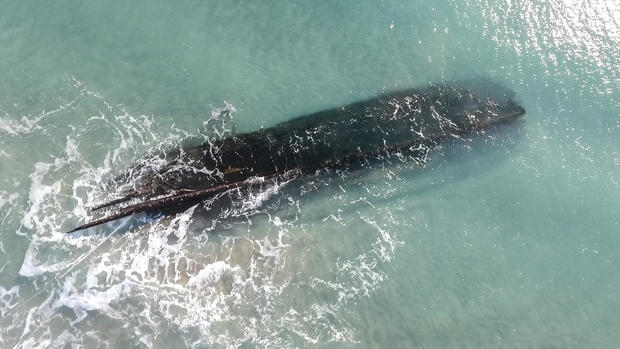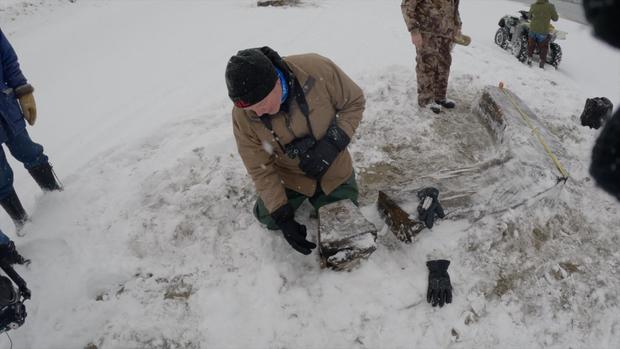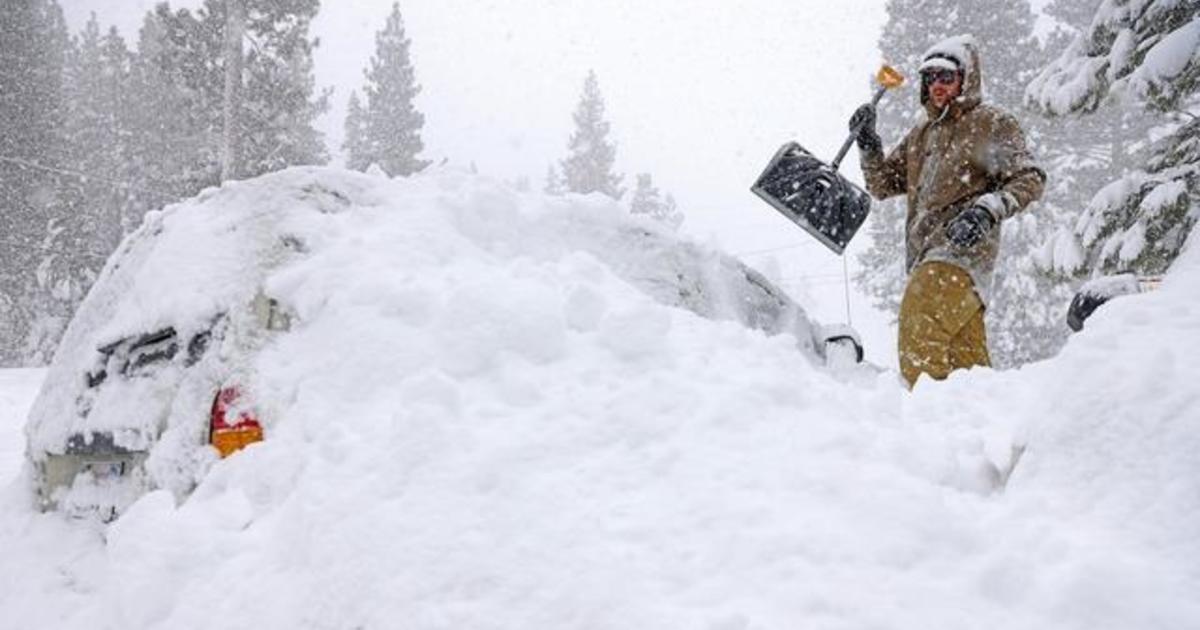Mysterious shipwreck washes up on snowy Canada shores, prompting race to salvage vessel being "pummeled by the ocean"
A shipwreck believed to date from the 19th century has washed up on the snow-covered shores of Canada's Atlantic island province of Newfoundland, attracting a bevy of onlookers and archaeologists probing its mysterious past. Now local residents and scientists are racing to study and preserve the wreck before it disappears back into the sea.
Over the past weekend, a team of archaeologists and volunteers rushed to recover parts of the 100-foot-long ship in Cape Ray before tides take it back to the ocean depths. They managed to extract wooden planks, metal sheathing from the keel and other bits which have been sent to a laboratory for analysis.
"We're hoping to identify the wood species and age of the wood and to identify the make-up of the metal. Those things will give us clues as to its age and origin," archaeologist Jamie Brake told a news conference on Tuesday.
"It's in a dangerous spot. It's being pummeled by the ocean and so on. It's not ideal conditions to try to learn more from it" at the site itself, he said, adding that it will probably take months for any results from the laboratory tests.
Located on the shores of J. T. Cheeseman Provincial Park on the southwest tip of Newfoundland, the wreck was discovered in late January in an area known for its numerous shallow rocks on which many ships have run aground over the centuries. At the time, photographer Corey Purchase posted stunning drone video of the shipwreck which lay upside down in shallow water.
Neil Burgess, president of the Shipwreck Preservation Society of Newfoundland and Labrador, joined the team conducting the survey of the wreck. Burgess said on social media that archaeologists collected wood samples and copper fasteners from the wreck.
He said that the keel and hull of the ship were upside-down on the beach, as well as many large timbers from the vessel.
"Once the artifacts and wood samples are analyzed, we're hoping to learn more about the age of this ship and where it came from," Burgess wrote.
According to Newfoundland's Archaeology Office, old shipwrecks are commonplace in this region, numbering in the thousands.
Brake noted European ships navigated these waters for hundreds of years.
Some believe that Hurricane Fiona, which in September 2022 hit Canada's Atlantic coast hard, may have dislodged the ship from the ocean floor.
A number of curious Newfoundlanders have journeyed to the site for a close up look at the wreck.
"It's a sizeable vessel," said Brake. "It is a pretty amazing thing to see. I can understand why this captures people's imagination, why people are so interested in it."
The community has launched a GoFundMe page to raise money to help recover, transport and preserve the wreck.
"This wreck has captured the imagination of people all over the world and has bought international attention to this humble community of approximately 300 people," the GoFundMe says. "We believe this shipwreck drifted into Cape Ray for a reason and we want to help tell its story."
The survey of the wreck comes just days after police said that human remains recently discovered on a beach in Canada's Prince Edward Island may be connected to a shipwreck from the 19th century. The bones were located in West Cape in an area where human remains have been discovered before, authorities said.





